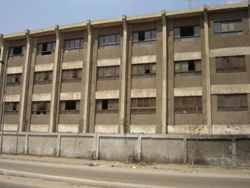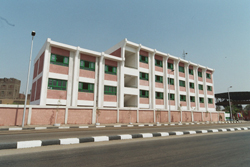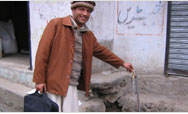You are here » Home » Telling Our Story
Before & After
School’s rehabilitation means healthier place for children to learn
Less Lead for Pupils Post-Remediation

Photo: LIFE-Lead/ Fady Nessim
Before: Before remediation, the level of lead in school soil reached 600 µg/g. On doors and windows, the level reached 14000 µ/square feet

Photo: LIFE-Lead/ Fady Nessim
After: After remediation, the level of lead in school soil has decreased to 78 µ/g, and to 13 µ/square feet on doors and windows.
El Shahid Ahmed Shaalan Primary School, in the heavily industrialized area of East Shoubra El-Kheima, has approximately 750 pupils between ages 5 and 12. USAID assisted the government of Egypt in closing down polluting industries that caused serious health hazards in the neighborhood. A related, second USAID-funded project identified the school as a polluted site that posed serious health hazards due to the presence of lead and other heavy metals from the nearby closed industries. Studies conducted at the initiation of the project showed that a large percentage of the area’s children had blood lead levels higher than acceptable, which can cause a number of health risks. The USAID project remediated the school to reduce the dangerous levels of lead pollution in its soil and structures. The remediation has resulted in a decrease in lead pollution to levels that are not endangering the lives of Shoubra El-Kheima residents, and especially the children of the Ahmed Shaalan School.
Print-friendly version of this page (533kb - PDF)
Click here for Before high-res photo
Click here for After high-res photo
Back to Top ^ | 

